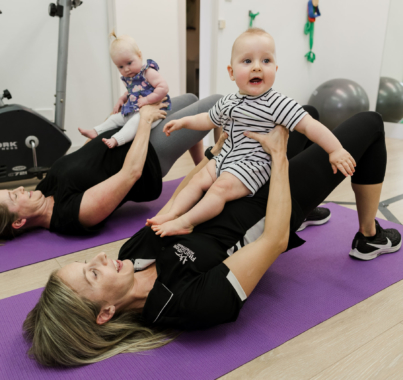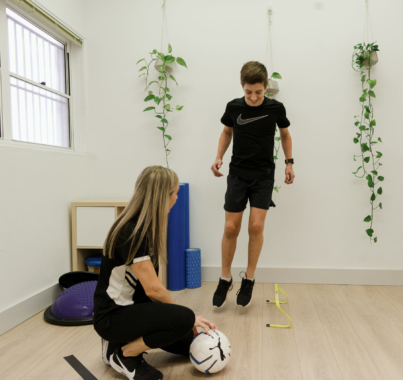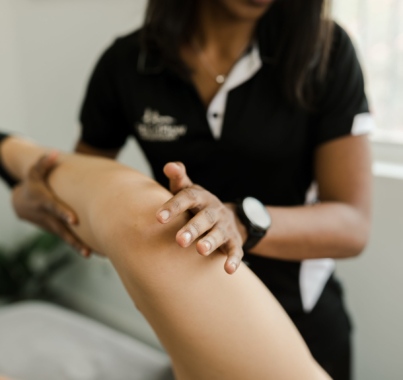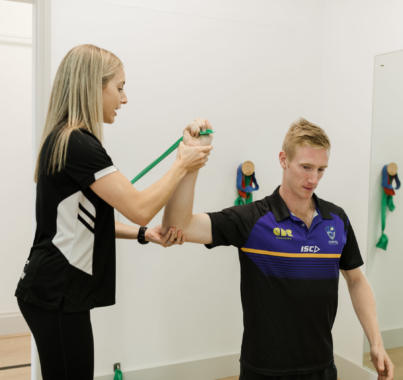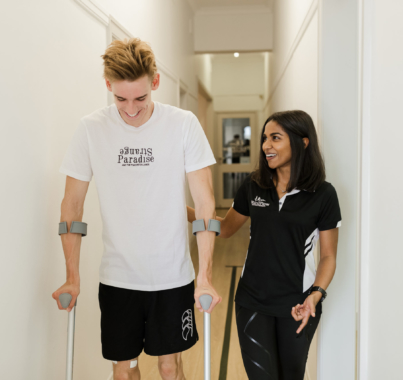Frozen shoulder, also known as adhesive capsulitis, is a condition that affects the connective tissues around the shoulder joint causing it to become stiff and painful.
This condition is more common in women, it is more prevalent in individuals with type 2 diabetes, and some medications can also increase the risk. Most cases of frozen shoulder resolve on their own over time. Some people may continue to have mild symptoms even after the condition has run its course, but these are usually less severe.
What often surprises people is just how long frozen shoulder can persist – lasting anywhere from 2 to 3 years, with some cases lasting up to 5 years. The condition progresses through three distinct stages: first, a phase of pain and increasing stiffness; then, a stage where stiffness remains but pain lessens; and finally, a ‘thawing’ phase where range of motion gradually improves.
There’s no one treatment that fixes it quickly, over time the condition improves on its own. However a combination of interventions can help improve shoulder function as the condition progresses and outcomes as it resolves.
We’ve put together 4 techniques to help manage frozen shoulder and reduce the impact it has on your daily life.

1. Exercise
Although the long term benefits of exercise in the management of frozen shoulder is unclear, the short term benefits of exercise include a reduction in pain, increases in range of motion, strengthening of the rotator cuff and reduction in the stiffness associated with avoidance of using the shoulder.
Exercising with frozen shoulder can include gentle stretching, active assisted movements and strengthening the rotator cuff within the range of motion that is available.
Exercise also provides the individual with a level of control and ownership of their injury which can reduce depression and anxiety scores, helping to manage pain.
2. Manual Therapy
Manual therapy can include massage, joint mobilisations and dry needling. Although manual therapy is unlikely to change the range of motion of the shoulder joint and frozen shoulder itself, it can have an impact on the joints and muscles around the shoulder.
Due to a decrease in range, compensatory patterns of movement are usually developed in order to move around pain and stiffness. This can create further issues in areas such as the neck, thoracic spine or elbow and wrist.
Treatment here can help improve the quality of movement at these joints, and reduce pain and injury.

3. Education
Understanding frozen shoulder as a condition can help manage the extent at which the condition affects the individual’s mental health and therefore their pain and disability.
It can assist with setting realistic expectations, which boosts motivation and improves mood. This, in turn, supports adherence to a management plan and exercise, while also helping the individual feel more in control of both the condition and their body.
All of these will help with the management of pain and reduce disability associated with frozen shoulder.

4. Injections
Cortisone and/or saline and anaesthetic injections can be administered into the joint to help reduce the pain associated with frozen shoulder. However these have been shown to have short term effects (about 3 months) and don’t appear to affect long term recovery. These could be an option for short term management of pain, along with exercise and education as a holistic approach to management.
Although frozen shoulder is unfortunately a limiting and painful condition, there are still plenty of management options that can significantly reduce the pain and functional limitations associated with the condition. Not one intervention alone can significantly affect the progression of the condition, however it is clear that a holistic approach to managing frozen shoulder can help to decrease the pain and disability associated with the condition.
If you suspect you may be developing frozen shoulder, or know someone who may be experiencing it, please be encouraged to come and see us to create a plan for management.


